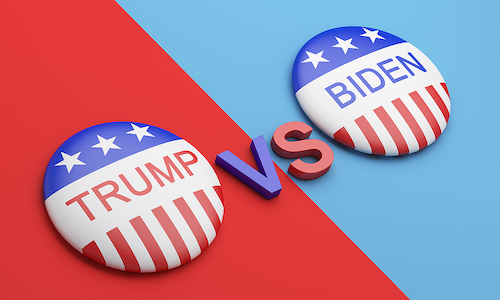 Americans living in a state that favours the losing candidate of the US Presidential election might experience a decline in their mental health.
Americans living in a state that favours the losing candidate of the US Presidential election might experience a decline in their mental health.
A study from researchers at UC San Francisco and Duke University used data from 500 thousand people during the 2016 Presidential election to examine mental health indicators.
Americans who lived in states that favoured Hillary Clinton experienced an extra half-day of poor mental health on average during the month after the election.
The higher the margin of victory for the candidate that lost the election, the higher the number of days in which residents of those states experienced stress and depression.
“We found a 15 per cent (or half a day) jump in the number of poor mental health days per adult over the course of just two months from October to December 2016 in states that voted for Clinton,” Brandon Yan, first author of the study and a third year medical student at UCSF told Theravive.
“With 109.2 million adults living in Clinton states, that becomes 55 million more days of stress, depression, and emotional distress in December versus October alone. We also find an increase in rates of depression shortly following the rise in reported poor mental health days,” he said.
Two surveys taken before and after the 2016 election found that roughly 50 per cent of Americans said that the election was a significant source of stress.
The 2020 American Psychological Association’s Stress in America survey found that this year, 68 per cent say the election and the current political climate is a significant source of stress and that is the feeling on both sides of the political divide. The survey found 76 per cent of Democrats and 67 per cent of republicans found the election to be a significant source of stress.
The researchers from UCSF and Duke collected data from the Behavioral Risk Factor Surveillance System, an annual household survey of over 499 thousand adults to examine the impact of the 2016 election.
Those surveyed in the 20 states that supported Clinton said that in the previous 30 days they experienced depression, stress and problems with their emotions. That amounted to an average of 3.35 days in October 2016 before the election and 3.85 days after the election.
For those surveyed who live in the 30 Trump states, poorer mental health was seen at an average of 3.94 days the month prior to the election and 3.78 days in the month after the election.
The researchers note that statistically this was largely unchanged. For those living in a Clinton state, however, researchers found a two-percentage increase in reports of 14 or more days of poor mental health in a single month during the same period. This is an indicator of a major depressive disorder. The same was not seen for those in Trump states.
The researchers argue the unexpected nature of Clinton’s loss in 2016 could have contributed to this.
“Expectations versus reality impact how we process and respond to news. We suspect that the unexpected nature, at least according to pre-election polls, of Clinton’s loss contributed to the worsening of mental health. In 2020, we could expect a similar impact on mental health if the election result conflicts with expectations, especially as the country is even more politically polarized than in 2016,” Yan told Theravive.
The study found that Clinton’s margin of victory across states was also predictive of the changes to mental health between October 2016 and December 2016. For states with a 10-percentage point higher margin, there were 0.41 more poor mental health days.
Comparatively, a 10-percentage point higher margin of victory for Trump saw 0.41 fewer poor mental health days.
By April 2017 the number of people in Clinton states who reported they had been told they had depression had risen 3.2 percentage points since October of 2016.
A similar effect was seen in Trump states, with a 2.8 percent increase in depression rates in the same period. Though the authors note this could be due to the opioid epidemic that claimed many lives in that year, mostly in Trump states.
The authors say their research highlights that clinicians should consider the impact the election could have on mental health across the country. Things may be even more difficult this year, they say, due to the worsening pandemic. Under these circumstances, they argue, it may be harder to take the usual approach to depression screening with more people isolated and not seeing their primary care provider.
Elizabeth Pratt is a medical journalist and producer. Her work has appeared on Healthline, The Huffington Post, Fox News, The Australian Broadcasting Corporation, The Sydney Morning Herald, News.com.au, Escape, The Cusp and Skyscanner. You can read more of her articles here. Or learn more about Elizabeth and contact her via her LinkedIn and Twitter profiles.